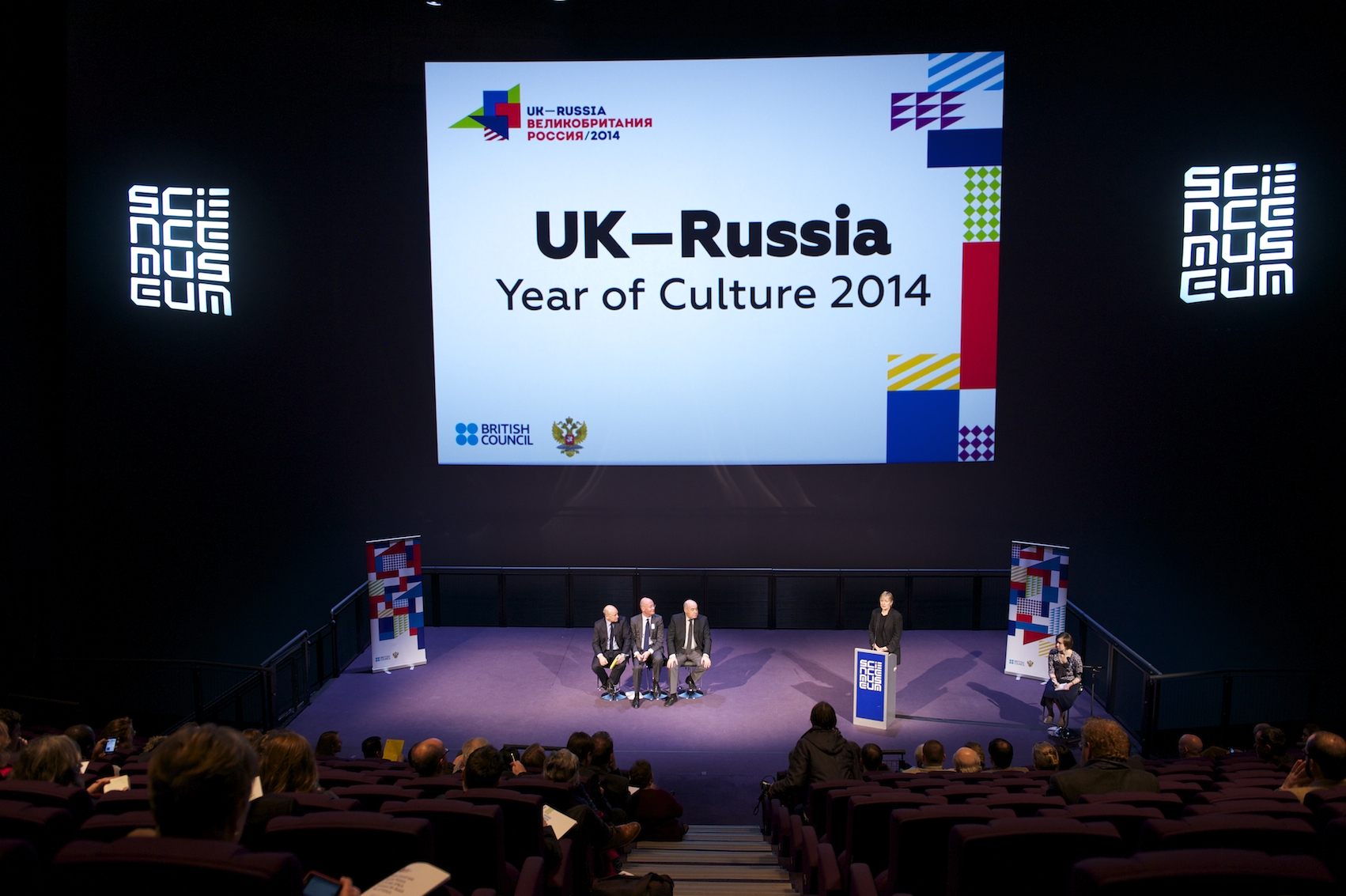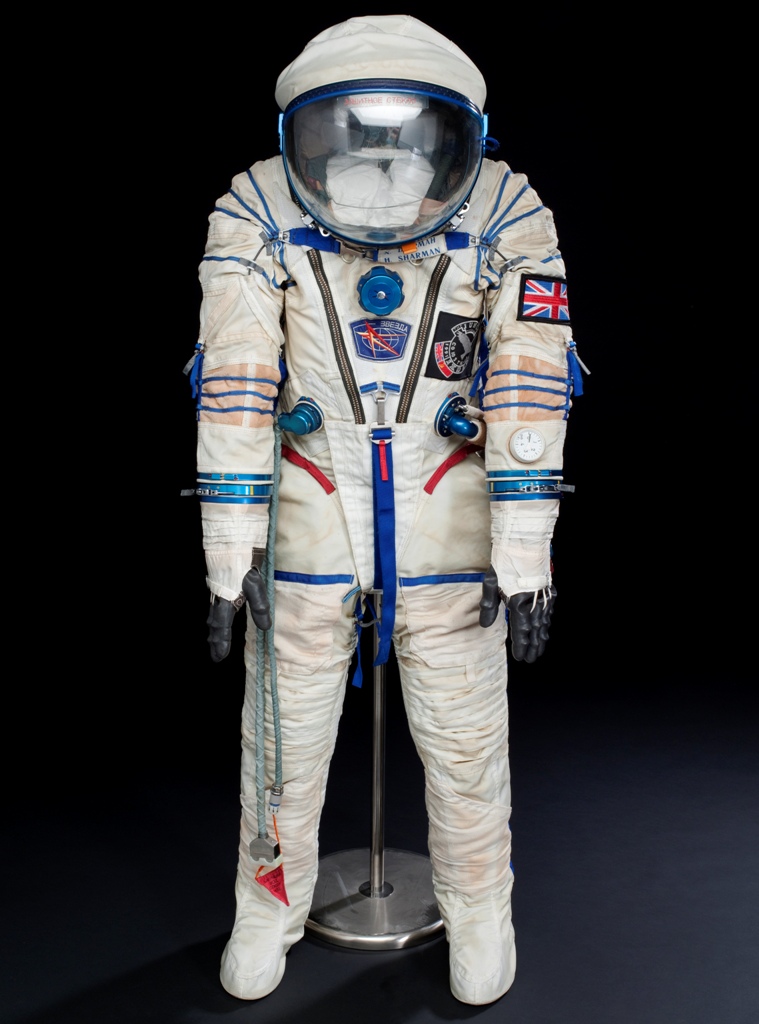Roger Highfield, Director of External Affairs, reveals a remarkable new exhibition opening in 2014.
A landmark exhibition of the Russian vision and technological ingenuity that launched the space age is to be the centrepiece of the largest ever festival of Russian and British culture.
Under the working title of ‘Russia’s Space Quest’, the Science Museum exhibition will bring unknown stories of space endeavour to life through a unique collection of space artefacts, many of which have never before been seen either outside Russia or in public.
The exhibition will be the headline attraction of the 2014 UK-Russia Year of Culture, a year-long programme of events that will celebrate the rich cultural heritage of both countries, according to the British Council and Russian Ministry of Foreign Affairs.

Olga Golodets, the Deputy Prime Minister for Social Affairs of the Russian Federation, said the year of culture ‘will lay a solid foundation for long-term cooperation in the future in various areas.” Rt Hon. the Baroness D’Souza, Lord Speaker, said it was a delight to launch the initiative.
At a launch event in the museum, Ed Vaizey, UK minister for culture, stressed the importance of the year for UK-Russia relations and said it would be a “flow of ideas”. This point was echoed by Mikhail Shvydkoy, President Putin’s special envoy for international cultural cooperation, who hoped the project would create “new trust” between the two countries.
Paul de Quincey, director of the British Council in Russia, also announced BP as the first UK Founder Sponsor of the UK-Russia Year of Culture, represented by Peter Charow, VP of BP Russia.
Among the star objects on display in Russia’s Space Quest will be cosmonaut-flown spacecraft, pioneering rocket engines, space suits and other life support systems. There will also be examples of the personal and poignant – memorabilia belonging to some of the biggest names in spaceflight.

The director of the Science Museum, Ian Blatchford, said such an exhibition, the equivalent in impact of the British Museum’s landmark Tutankhamen exhibition, had been a dream of Deputy Keeper, Doug Millard, for more than two decades.
‘Russia’s Space Quest’, which is being led by curators Doug Millard and Natalia Sidlina, represents a major collaboration between the Moscow State Memorial Museum of Cosmonautics and the Federal Space Agency, Roscosmos, and draws on the support of many institutions and individuals in the UK and Russia.
Mr Blatchford said that it was important to have this exhibition to capture the excitement of the early years, while scientists, engineers and technicians from the Russian quest were still alive: “It is imperative that we do this exhibition now, before their stories are lost – as that would be a terrible blow.”
‘Russia’s Space Quest’ will also explore the science and technology of Russian space travel in its cultural and spiritual context, revealing a deep rooted national yearning for space that was shaped by the turbulent early decades of the twentieth century.
The dream of the Cosmists became a reality between October and November 1957, when Sputnik and then Laika the space dog were launched, and 1961 when the rest of the world watched in astonishment as a Russian man became the first human to look down on our fragile blue world.
This week Intandem Films and Russia’s Kremlin Films joined the Russian Embassy to host a special screening in the Museum’s IMAX of the $10 million budgeted biopic Gagarin: First in Space.
The movie, directed by Pavel Parkhomenko, is produced by Oleg Kapanets and Igor Tolstunov and stars Yaroslav Zhalnin, Mikhail Pilippov and Viktor Proskurin.
The film dramatizes the story of how Yuri Gagarin was selected from over 3,000 fighter pilots across the USSR to take part in his country’s space program, that culminated in him blasting off in a Vostok rocket on April 12, 1961, after several failed unmanned launches.
The screening at the museum was hosted by the Russian Ambassador Alexander V Yakovenko, who praised Russia’s Space Quest as one of the most important cultural events staged and supported by the U.K. and his country, and attended by Culture Minister Maria Miller.
The biopic was introduced by Yuri Gagarin’s daughter, Elena Gagarin, who said the world changed forever after her father made the first manned flight into space.